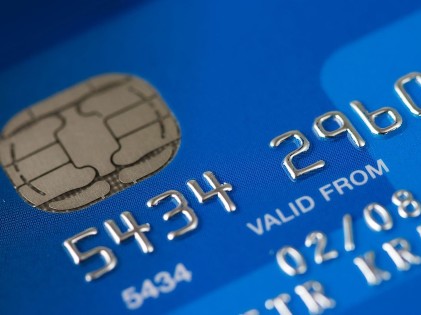
Here’s Why You And Your Spouse Should Have Separate Bank Accounts

Are you getting married? First of all, congratulations on your life ahead. Finance is going to be one of the most important aspects after you walk down the aisle. So did you have a detailed discussion on it with your spouse-to-be? Most couples don’t. Make it a point to do so. Even if you guys take up the traditional roles – one being the breadwinner and the other taking care of everything your family needs, you need to have separate bank accounts. Some finance experts and marriage counselors advise having a joint checking account to boost marital communication about finance. However, if you need to be in your comfort zone money-wise, having separate bank accounts is recommended. Why so? Find out.
Overdrawing is Easy in Case of a Joint Account
 If you and your spouse have a joint account, each of you will need to be more careful about how you are using every penny. You will also have to intimate your partner about how much you are withdrawing, and what you are spending the money on. In the case of some couples, that is hardly an issue since they would like to store the money that earns them zero interest in a checking account. However, for many, mentioning every purchase can be tough.
If you and your spouse have a joint account, each of you will need to be more careful about how you are using every penny. You will also have to intimate your partner about how much you are withdrawing, and what you are spending the money on. In the case of some couples, that is hardly an issue since they would like to store the money that earns them zero interest in a checking account. However, for many, mentioning every purchase can be tough.
This will eventually leave the checking account overdrawn. To have a joint account operating properly, either of you will have to take the role of the so-called money boss, one who keeps track of your money. If that is not the case, both of you will have to work on balancing your check register on a daily or weekly basis. These steps are necessary as you are bound to get into a crisis if the finances are neglected since both of you can look at the balance and believe that you have the whole sum to spend.
No Power Imbalance
 There are a lot of instances where wives have to ask for money from their husbands before shopping. When one half of a couple earns more money or, in fact, all of the money, choosing to have a joint account is more or less like a parent/child relationship as far as spending is concerned. If you are the only earning member or earn more, your spouse will have to inform you, or even take permission, regarding the simplest expenses.
There are a lot of instances where wives have to ask for money from their husbands before shopping. When one half of a couple earns more money or, in fact, all of the money, choosing to have a joint account is more or less like a parent/child relationship as far as spending is concerned. If you are the only earning member or earn more, your spouse will have to inform you, or even take permission, regarding the simplest expenses.
This is similar to asking for an allowance. The higher-earning member is usually particular about the hard-earned money is being spent. Giving the amount up might make them resentful. This is true, particularly in cases where that spouse does not pay the bills or shop for groceries, leaving them clueless regarding the current expenses. If a couple maintains separate accounts, they can make their own financial decisions and even personal budgets, without having to ask their partners.
Having Different Spending Habits is Fine
 Women are usually known to make small purchases almost every month. On the other hand, the husbands will keep their hands off the money till they make their mind to spend some amount on a large purchase. The overall estimation might reveal that both spouses have shelled out the same amount.
Women are usually known to make small purchases almost every month. On the other hand, the husbands will keep their hands off the money till they make their mind to spend some amount on a large purchase. The overall estimation might reveal that both spouses have shelled out the same amount.
However, partners might find it difficult to understand the spending habits of each other. If there is proper communication between married couples on the amount of money to be spent on goods for personal use, whether that particular spending is done in a day or throughout a year, it shouldn’t hold that much importance. If you have separate accounts, you and your spouse will not be under any obligation to even defend such things.
Separate Accounts Won’t Make You Feel Trapped
In many cases, women who find their husbands cheating on them can neither stay happy in the marriage nor think of a divorce, since they don’t have a separate bank account. Not having their own account implies that they would have to wait for a long time before they can get hold of any financial support. Divorcing one’s partner or staying in a marriage can be a complicated decision to take. However, the decision shouldn’t depend on whether one has enough money to survive in the new phase of life.
Married couples often consider their money as shared. That’s fair enough. With that being said, they actually don’t need to keep their money in a joint account.
More in Big Bank Accounts
-
`
Curious About Travis Kelce’s Net Worth? Here’s the Scoop!
Travis Kelce’s name echoes through NFL stadiums, synonymous with athletic prowess and electrifying plays. But beyond his touchdown celebrations and record-breaking...
June 10, 2024 -
`
Everything You Need to Know About an Assumable Mortgage
What is an Assumable Mortgage? Whether you are a buyer or a seller, understanding the concept of assumable mortgages can open...
June 6, 2024 -
`
Layoff vs. Fired – Understanding the Crucial Differences
When it comes to job loss, understanding the distinction between being layoff vs. fired is crucial. While both situations result in...
May 30, 2024 -
`
When Are Business Taxes Due 2024? Essential Dates and Deadlines
Tax deadlines can be daunting, but fear not! Let’s break down everything you need to know to stay on top of...
May 22, 2024 -
`
How Much Does Jeff Bezos Make Per Hour? It’s More Than You Think!
Jeff Bezos, a name synonymous with innovation and wealth, stands as one of the world’s richest individuals. While Bernard Arnault and...
May 16, 2024 -
`
What is Portfolio Investment Entity (PIE) and How Can it Benefit You?
In the intricate world of finance, individuals seek avenues to optimize their investments while minimizing risks. One such avenue gaining traction...
May 9, 2024 -
`
What is a Bank Statement? Understanding its Definitions, Benefits, and Prerequisites
Ever wondered where your money goes? A bank statement is like a financial report card, giving you a clear picture of...
April 30, 2024 -
`
Branded Content: A Genuine Way to Connect With Your Audience
Have you ever binge-watched a series on Netflix, only to later realize that the beverage everyone’s sipping on is that brand...
April 23, 2024 -
`
What Car Does Jeff Bezos Drive? Find Out Inside His Exclusive $20 Million Collection
Have you ever wondered what car does Jeff Bezos drive? This man’s tastes in vehicles are as expansive as his business...
April 17, 2024















You must be logged in to post a comment Login